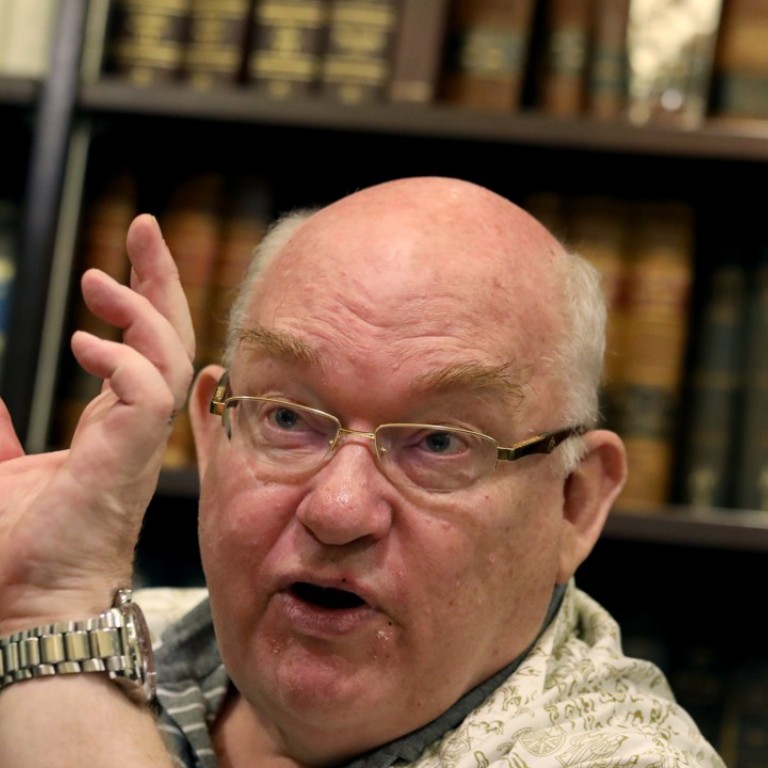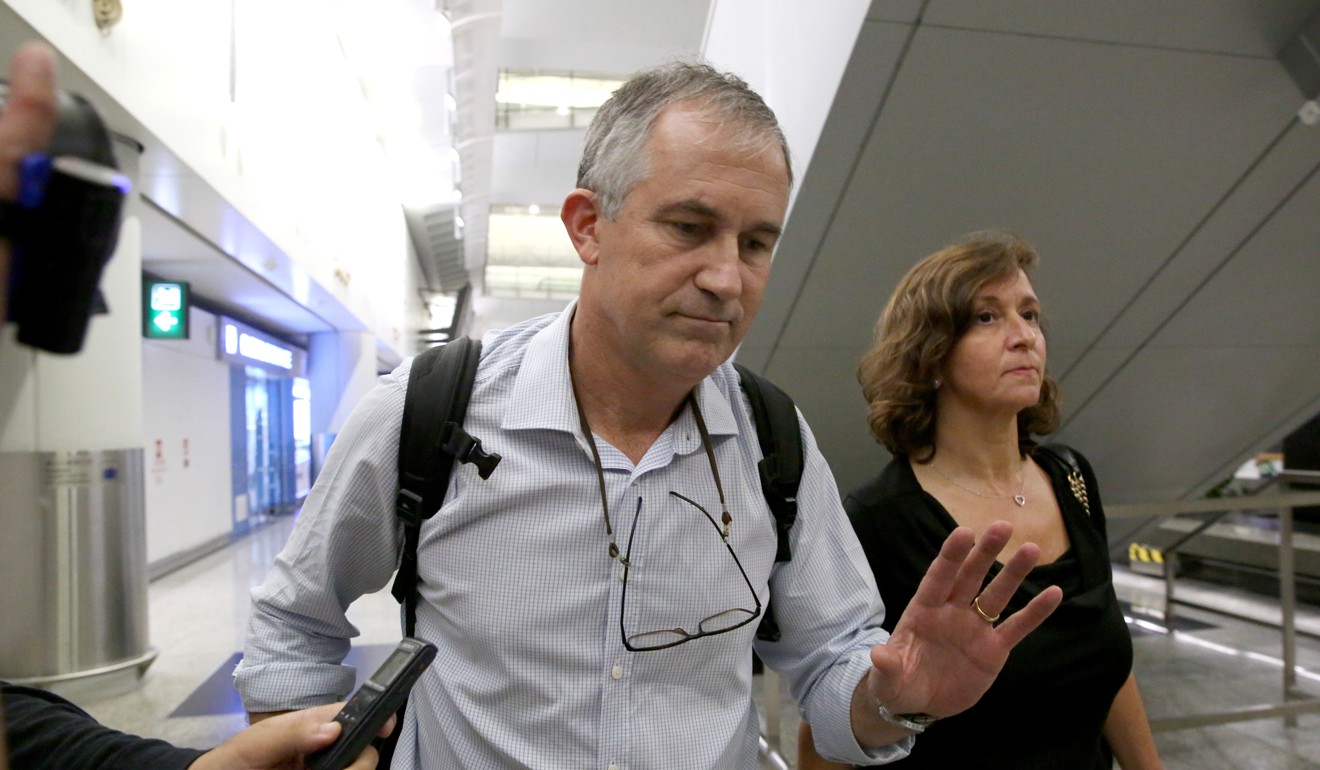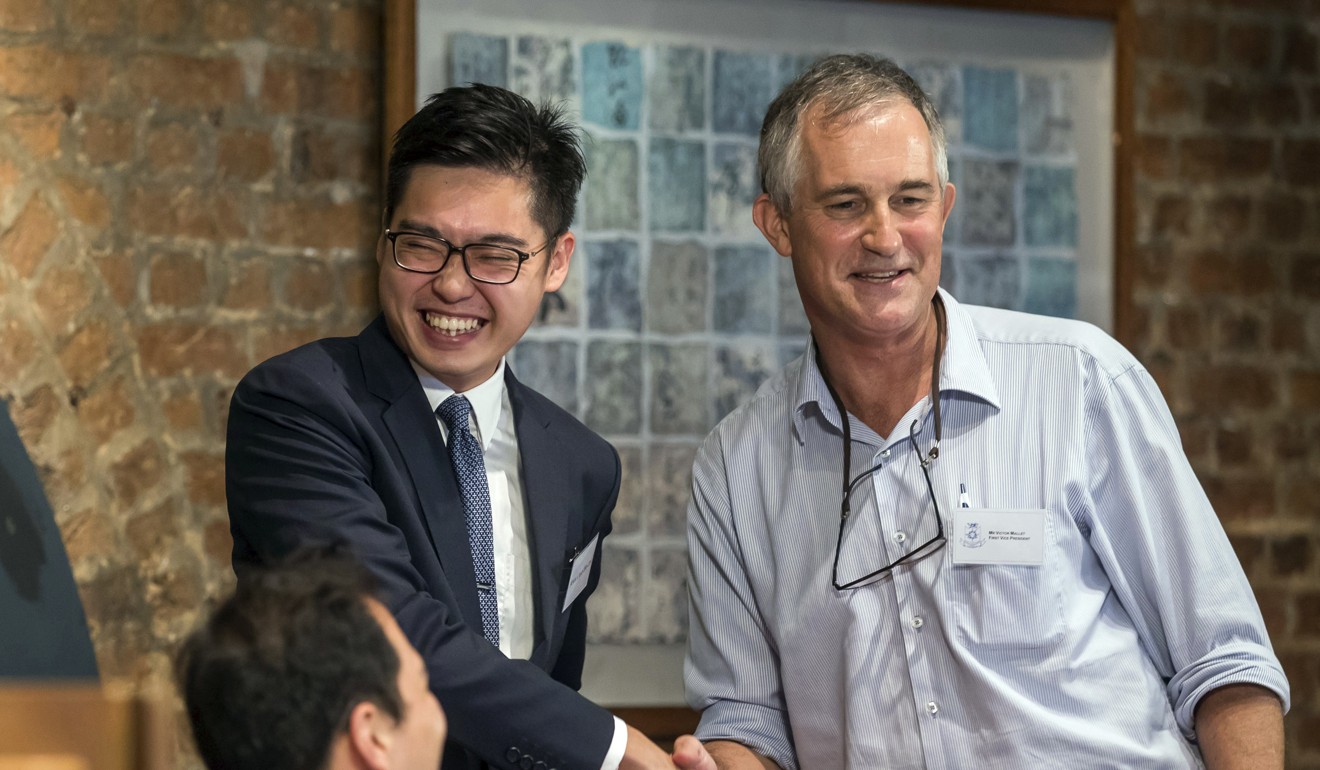
Journalist’s visa refusal made Hong Kong ‘look silly’, and leader Carrie Lam wrong to say not explaining decision was accepted practice, says city’s top lawyer
Bar Association chairman Philip Dykes points to Britain and Australia as countries where those turned down for a visa are given written explanation for decision
Hong Kong’s leader was wrong when she said the government was following international practice in refusing to say why British journalist Victor Mallet was denied a work visa – the city’s top lawyer said on Monday.
Bar Association chairman Philip Dykes pointed to immigration authorities in Britain and Australia, which both issue written explanations when a visa or entry to the country is denied, as evidence of why Chief Executive Carrie Lam Cheng Yuet-ngor was mistaken.
The senior counsel said the requirement under British and Australian law to explain any decision ensured these were made on a “non-arbitrary basis”, so visitors knew why they had been turned away.

“You can’t operate an immigration system ad hoc. Today chief immigration officer Wong made a decision, tomorrow chief officer Chan made a decision, that’s completely different,” Dykes said, speaking in a personal capacity. “You’ve got to have policies and rules, and have to make them known to achieve consistency and fairness.”
Without naming the pro-Beijing newspapers that drew comparisons between the British government actions in the past, and the decision not to renew the visa for Mallet, the Financial Times’ Asia news editor, the consulate said: “Such comparisons are wrong.”
Under British immigration law, the government has to publish a “notice of immigration decision” when denying a foreign national a visa or entry to the country.
Journalist Victor Mallet made himself unwelcome in Hong Kong
While the Financial Times said the Immigration Department has not explained why the visa was refused, the move was linked to Mallet’s moderation of a controversial talk at the Foreign Correspondent’s Club in August by Andy Chan Ho-tin, founder of the now outlawed Hong Kong National Party.
Despite Britain and the European Union pressing the Hong Kong government for an explanation, Lam backed the department’s stance on not explaining its decision.
“As a rule, not only locally, but internationally, the Immigration Department will not disclose the individual circumstances of the case,” Lam said.
In an interview with the Post, Dykes said although authorities are generally given broad discretion to handle immigration matters, offering an explanation as to why a visa was refused is only fair, so the applicant can prepare an appeal, or know if they will ever be welcome to return.
While not speculating as to whether Mallet’s participation in Chan’s speech at the FCC led to his expulsion, Dykes said the decision made Hong Kong “look silly” internationally.
“[The non-renewal] looks like retribution for doing something, that’s not in breach of the law,” Dykes said.

Some Beijing loyalists claimed Mallet’s role as FCC’s acting president was to blame, and pressed the government to fulfil its constitutional duty by enacting a national security law under Article 23 of the Basic Law. The government has offered no concrete timetable for that happening.
Dykes said all the FCC did in August was no different to their journalistic role, and had simply invited a newsworthy figure to explain his position on a contentious topic.
On the enactment of Article 23, Dykes said any national security law maintaining an accepted level of human rights could not punish people for merely discussing the idea of independence.
“The sooner the government engages with the society, the better it will be,” he said.

